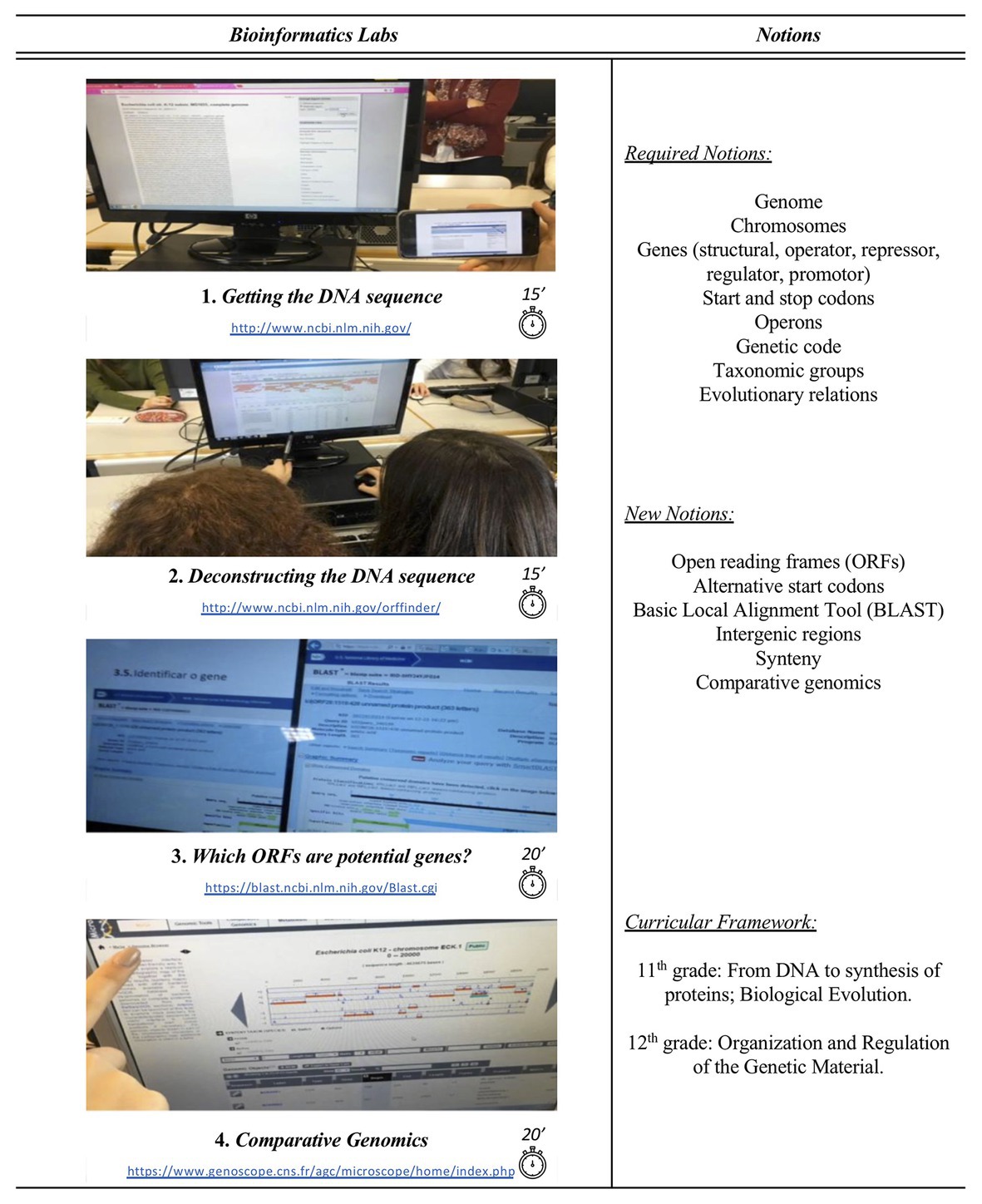Getting The Bioinformatics Tutor To Work
Getting The Bioinformatics Tutor To Work
Blog Article
Some Known Details About Bioinformatics Tutor
Table of ContentsIndicators on Bioinformatics Tutor You Should KnowBioinformatics Tutor Fundamentals ExplainedBioinformatics Tutor Can Be Fun For AnyoneFacts About Bioinformatics Tutor Revealed8 Easy Facts About Bioinformatics Tutor Explained
Of the overall participants entailed in the training, 80% were students from public greater education institutions, while the continuing to be 20% came from exclusive organizations. To certify for a certificate of engagement, trainees were called for to attend at the very least 90% of the overall training hours. As an outcome of this need, an excellent 95% of the individuals successfully acquired their certifications, having not only fulfilled the minimum attendance requirements but likewise finished all assigned activities throughout the training.
Throughout the elevation of the COVID-19 pandemic, particularly in between June and August 2020, the project group was tasked with arranging specialized training in bioinformatics. This training was particularly intended at pupils from the research study team Nucleus for Research study in Applied Computer at the Federal University of Pará (UFRA) The adjustment to remote learning platforms as a result of the pandemic created a possibility to check out brand-new mentor methods and electronic devices that improved both reach and performance.
This course was designed to give an easily accessible yet detailed summary of Artificial Knowledge methods, especially as used in bioinformatics (Bioinformatics Tutor). This online format made it possible for involvement from students throughout Brazil, numerous of whom could not have had the chance to attend in-person sessions.
The Basic Principles Of Bioinformatics Tutor
About 50% of the complete training hours were dedicated to useful tasks where pupils constructed intelligent models and applications in a variety of scientific domain names, including genetics, molecular biology, and environmental information evaluation. These systems made it possible for students to engage in real-time data control, design training, and formula trial and error.
Sixty of them were connected with numerous greater education institutions in the state of Pará, while the remaining twenty came from establishments situated in 5 other Brazilian states. By introducing Artificial Knowledge in a relevant and practical context, the campaign served to bridge the gap in between theory and real-world application, offering pupils with a strong foundation for future study or work in the area.
The training campaign developed part of a more comprehensive scholastic outreach effort called the Bioinformatics on the Roadway project. This job has, over the years, introduced dozens of pupils to the world of bioinformatics and computational biology. The occasions held under this umbrella effort have taken area across numerous regions and years, as summed up in Table 1 (Listing of events, places, years, and total varieties of students and teachers)
Numerous of these groups, originally brought with each other by their engagement in training events, have considering that gone on to generate go to this website independent clinical research in cooperation with local academic organizations. The training not just cultivated scientific thinking within the context of bioinformatics however additionally sparked collaborative connections that prolonged past the training setting.
The smart Trick of Bioinformatics Tutor That Nobody is Talking About
The exact same team, leaving out IH and RR, additionally acted as tutors for the functional training modules. Financing for the task was supplied through the grant 88887.200562/ 2018-00 from CAPES.
The Federal University of Pará's Workplace of Research study (PROPESP/UFPA) likewise provided financial backing, specifically for the manufacturing of the final manuscript. The authors proclaim no industrial or financial conflicts of passion that might have influenced the study. All viewpoints and interpretations expressed in this write-up are exclusively those of the authors and do not necessarily reflect those of their respective organizations, the publisher, editors, or customers involved in the magazine process.

Some Known Details About Bioinformatics Tutor
From a pedagogical viewpoint, the mentor approach utilized in the training was deliberately interactive. Classes were performed in a manner that urged pupil involvement and conversation, going beyond memorizing memorization to explore exactly how ideas are established, used in every day life, and examined in academic setups. The educational ideology concentrated on supporting both solid and battling pupils, giving customized assistance, and building confidence with continual mentorship and patience.
Each group, consisting of approximately 36 participants, was supported by 3 advisors-- the majority of whom were postdoctoral researchers with specialized proficiency. These coaches not only helped develop the team tasks but also facilitated their implementation, guaranteeing that each research study question was both properly tough and pertinent. The objective was to supply discover here a naturally realistic context that participants could discover via flexible goals and accessibility to curated datasets.
For additional understandings into the technique and outcomes of this project-based understanding method, viewers are guided to S1 Text, that includes comprehensive summaries of the pedagogical framework, analysis techniques, and task themes utilized in the training sessions.
What Does Bioinformatics Tutor Do?
Of the total amount participants involved in the training, 80% were pupils from public higher education establishments, while the staying 20% came from private establishments. To you could try here certify for a certificate of engagement, students were called for to go to at the very least 90% of the complete training hours. Especially, beyond the pupils who enlisted in the training sessions, seven knowledgeable trainers got involved in delivering the training courses, while three committed research study professors collaborated the total training process. Roughly 50% of the overall training hours were committed to useful activities where pupils built smart versions and applications in an array of scientific domain names, consisting of genes, molecular biology, and environmental data analysis. The training not only cultivated clinical thinking within the context of bioinformatics but additionally triggered joint partnerships that prolonged beyond the training atmosphere.
Report this page